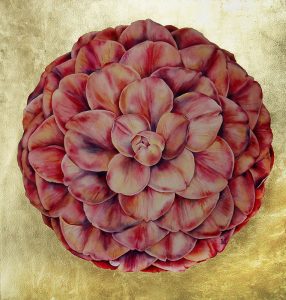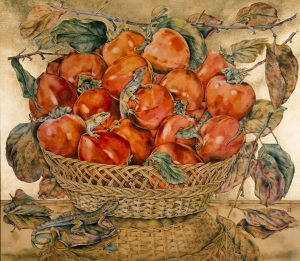 The Yogabliss, Your Heart Life on-line Moving into Meditation classes met this morning. Today’s class affirms the basic innate goodness we share. We practiced appreciation as a way of attuning to this goodness within ourselves and each other.
The Yogabliss, Your Heart Life on-line Moving into Meditation classes met this morning. Today’s class affirms the basic innate goodness we share. We practiced appreciation as a way of attuning to this goodness within ourselves and each other.
We heard from Yongey Mingyur Rinpoche’s teachings on the five appreciations. We drew from his Tricycle Magazine article, The Antidote to Self-Criticism. Rinpoche encourages us to practice appreciation for our innate goodness or what many call our true nature. We can recognize it within ourselves and in each other.
We heard Matty Weingast’s poem Mitta – Friend. This poem is from Matty’s book, The First Free Women: Poems of the Early Buddhist Nuns, a reimagining of the Therīgāthā. This poem is inspired by the original writing of poet, Mitta. It is about finding friendship and belonging on the spiritual path.
 We heard from Jeanne Corrigal’s Tricycle Magazine series, Closer Than We Think: Gentle Reflections on Death. In this section of the series Jeanne shares practices to support others in the transition of death.
We heard from Jeanne Corrigal’s Tricycle Magazine series, Closer Than We Think: Gentle Reflections on Death. In this section of the series Jeanne shares practices to support others in the transition of death.
One practice is helping others to remember their own goodness.
We ended with Alberto Rios’ poem We Are of a Tribe. The poem celebrates the common home we can find and share in the sky. It affirms the freedom and joy we can find in leaping the world’s ties.
Welcome. As we approach this Thanksgiving holiday, no matter our circumstances, we can find much to appreciate and be grateful for. Let’s begin by settling into our surroundings. Notice the relative warmth or coolness in the room, the quality of light. Sense the what you are sitting or lying on. You might adjust your position until you feel more ease and also alert. You can take a few slow deep breaths to settle. Slowly breathe in. Gradually breathe out. Notice how it is being here, now. Notice the overall sense of being you may be experiencing. Can you tune into feeling just as it is?
As you hear my voice you may also be aware of everyone present today. We can sense each other’s presence. Each of us brings our heart and mind to create this circle. Our time together arises from an intention. I invite you to take a few moments to reflect on why you’ve come. Notice what arises for you, you might even name it. I am here to practice peace, loving kindness, compassion. I am here for a sense of belonging and connection. Notice what is true for you.
 Buddhist teachings hold that we all have basic innate goodness: our true nature. Tibetan Buddhist teacher Yongey Mingyur Rinpoche explains that we can discover our true nature through the practice of appreciation. I invite you to take a moment to reflect on your experience of appreciation. This body, mind and senses. The relative absence of pain. You might observe the many conditions that enable you to be here, alive, present in this moment. The availability and freedom of spiritual practice. Rinpoche points to our having basic innate goodness. He believes “. . . at a deeper level, love and compassion, wisdom, and awareness is our fundamental nature.”
Buddhist teachings hold that we all have basic innate goodness: our true nature. Tibetan Buddhist teacher Yongey Mingyur Rinpoche explains that we can discover our true nature through the practice of appreciation. I invite you to take a moment to reflect on your experience of appreciation. This body, mind and senses. The relative absence of pain. You might observe the many conditions that enable you to be here, alive, present in this moment. The availability and freedom of spiritual practice. Rinpoche points to our having basic innate goodness. He believes “. . . at a deeper level, love and compassion, wisdom, and awareness is our fundamental nature.”
Rinpoche invites us:
Now, please appreciate having this body. It is amazing that we have this body. Appreciate that I’m alive now, and I am breathing. How wonderful! I was born with spiritual freedom. I can choose. I can choose to practice meditation. This is wonderful! . . . And I have my senses. . . . Appreciate that you have these wonderful eyes; ears so you can hear the teachings; a nose so you can smell things; a tongue that tastes wonderful, delicious food; and bodily sensations also. I have wonderful basic innate goodness. Awareness is my true nature, love and compassion are my innate qualities, and I have wisdom. Appreciate your basic innate goodness.
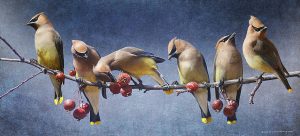 These gifts are freely given. Gratitude is a state of being. We appreciate what has been given. In appreciation we recognize value and meaning in our lives. It’s about noticing the things we ordinarily take for granted and allowing them to nourish us.
These gifts are freely given. Gratitude is a state of being. We appreciate what has been given. In appreciation we recognize value and meaning in our lives. It’s about noticing the things we ordinarily take for granted and allowing them to nourish us.
I invite you to tune into your own goodness. Kind thoughts. Moments of listening to an other. A gentle touch. Notice what arises. Let your attention linger a bit. Notice any feelings or sensations around this goodness, however small. Take some time to savor them.
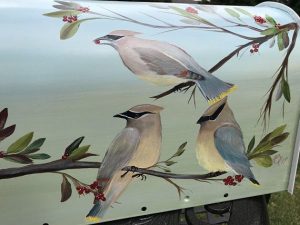 You might think of something kind that someone said or did recently. Can you recall an ordinary moment in which you made eye contact with another? What comes alive in that moment of connection? It could be as simple as a smile or someone who spent time with you or offered to help you. Let that moment come to mind. Remember those acts of kindness. Notice any feelings or sensations of ease or pleasure however small and really let them in.
You might think of something kind that someone said or did recently. Can you recall an ordinary moment in which you made eye contact with another? What comes alive in that moment of connection? It could be as simple as a smile or someone who spent time with you or offered to help you. Let that moment come to mind. Remember those acts of kindness. Notice any feelings or sensations of ease or pleasure however small and really let them in.
We can nurture qualities we value by thinking about them. They inspire the lives we lead. By appreciating the inner and outer goodness of the world we find kinship. In kinship with all beings we find belonging. Poet and writer Matty Weingast writes about finding friendship and belonging on the spiritual path. His words are inspired by Mitta, a poet in the Therīgāthā—a collection of 73 poems by the first Buddhist nuns—(The poems date from a three hundred year period, with some dated as early as the late 6th century BCE.) This one is called Friend:
Full of trust you left home,
making yourself a friend to everyone
and making everyone a friend.
When the whole world is your friend,
fear will find no place to call home.
And when you make the mind your friend,
you’ll know what trust
really means.
Listen.
I have followed this Path of friendship to the end.
And I can say with absolute certainty –
it will lead you home.
I invite you to relax. Gently turn your head from side to side. Arrange your arms, legs and head to be completely at ease. Rest your whole being on Earth’s body. If you connect with this support appreciate it. If there is a sense of ease, savor it.
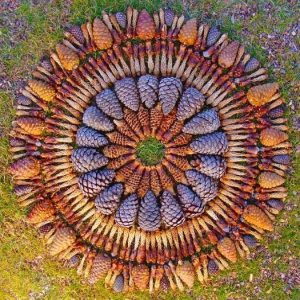 Right now we can give thanks. We can sense being part of it all. The ups and downs, the mysteries of being alive. What can we open to? How is it to meet what ever arises – even difficulties – with acceptance, kindness, curiosity? There may be ease or discomfort, contentment or struggle, sadness or joy. These are expressions of life that we share. As we follow the Path of friendship we can know we are making our way together. The Buddha once taught the having “Admirable friendship, admirable companionship, admirable camaraderie is . . . the whole of the holy life.”
Right now we can give thanks. We can sense being part of it all. The ups and downs, the mysteries of being alive. What can we open to? How is it to meet what ever arises – even difficulties – with acceptance, kindness, curiosity? There may be ease or discomfort, contentment or struggle, sadness or joy. These are expressions of life that we share. As we follow the Path of friendship we can know we are making our way together. The Buddha once taught the having “Admirable friendship, admirable companionship, admirable camaraderie is . . . the whole of the holy life.”
I invite you to reflect a moment on the friends that are dear to you. Perhaps recalling meaningful moments of life that you shared together. The giving and receiving that freely flows in friendship. You might remember your friend’s innate goodness, the many qualities that you shared. Or the differing interests or pursuits from which you learned from each other. What is like for you to bring your friend to your heart?
Insight meditation teacher Jeanne Corrigal describes how the Buddha helped a friend on his deathbed. She recalls:
 He helped him to remember his goodness. . . . This is a really important practice for us: to remember our goodness. We can help someone remember their goodness throughout their life, and we can also help ourselves by remembering our goodness. This is a daily practice. This is a practice that the Buddha recommended to those of us who are householders . . . to reflect on [our] virtue in every activity [we do].
He helped him to remember his goodness. . . . This is a really important practice for us: to remember our goodness. We can help someone remember their goodness throughout their life, and we can also help ourselves by remembering our goodness. This is a daily practice. This is a practice that the Buddha recommended to those of us who are householders . . . to reflect on [our] virtue in every activity [we do].
Jeanne describes this as an important “remembering of our harmonious relations.” She describes how the Buddha explained its importance:
When a practitioner is recollecting their virtue, their mind is not overcome with clinging. Their mind is not overcome with aversion and not overcome with delusion. At these moments, one can gain a sense of . . . joy connected with the dharma. In one who is joyful, rapture arises. In one who is rapturous, the body grows calm. One whose body is calm experiences ease . . .
 We can recognize our own goodness and the goodness of others. We can learn to see beyond protective conditioning. We can attune to how the sacred lives through us. We can share the light of awareness.
We can recognize our own goodness and the goodness of others. We can learn to see beyond protective conditioning. We can attune to how the sacred lives through us. We can share the light of awareness.
Let us support each other to move through life with acceptance, kindness and curiosity as we walk this Path of friendship to the end. Poet Alberto Rios writes of the home we find in each other.
We Are Of A Tribe
We plant seeds in the ground
and dreams in the sky,
Hoping that, someday, the roots of one
Will meet the upstretched limbs of the other.
It has not happened yet.
We share the sky, all of us, the whole world:
Together, we are a tribe of eyes that look upward,
Even as we stand on uncertain ground.
The earth beneath us moves, quiet and wild,
Its boundaries shifting, its muscles wavering.
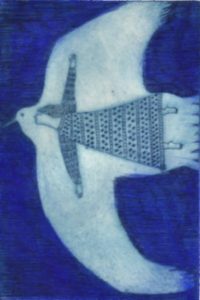 The dream of sky is indifferent to all this,
The dream of sky is indifferent to all this,
Impervious to orders, fences, reservations.
The sky is our common home, the place we all live.
There we are in the world together.
The dream of sky requires no passport.
Blue will not be fenced. Blue will not be a crime.
Look up. Stay awhile. Let your breathing slow.
Know that you always have a home here.

